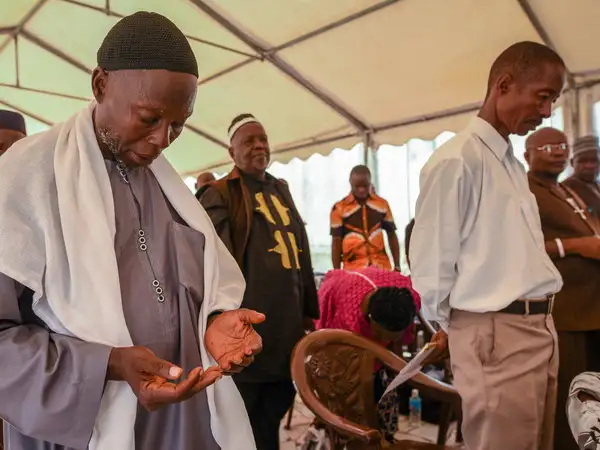Renewing faith in democracy
This report uses case studies from five countries - Democratic Republic of Congo, Kenya, Sierra Leone, Zambia and Zimbabwe - to explore how the Church makes a difference in elections in Africa.

Faith and religious practice are central to most people’s lives in the Global South. Religious institutions are at the heart of society - the cornerstones of the community - with a long reach into even the most remote communities. Religious leaders hold people’s trust and often have authority and influence where state and local officials do not.
Therefore, understanding the role of faith and faith-based organisations is central to effective development and humanitarian response, and to building mutually beneficial partnership across a wide range of issues and actors.
Through our work on church and development, CAFOD is seeking to influence how the UK government understands and works with faith actors throughout international diplomacy, development and humanitarian work by:
developing long-term partnerships with faith actors
consulting and developing programmes with local faith actors
resourcing and supporting faith actors where they can play a distinctive role, such as in peacebuilding, changing social norms, humanitarian response, deepening democracy and accompanying the poorest and marginalised communities as they tackle unjust systems and structures.
This report uses case studies from five countries - Democratic Republic of Congo, Kenya, Sierra Leone, Zambia and Zimbabwe - to explore how the Church makes a difference in elections in Africa.
Drawing from dozens of inspiring examples, this report on the role of the Catholic Church outlines seven clear ways it makes a lasting difference to people’s lives.
This joint report by CAFOD, Christian Aid, Tearfund and Islamic Relief shows that Christian and Muslim leaders were able to deliver health messages in places that governments and NGOs could not reach.
By analysing the 2030 Agenda through the lens of Laudato Si’, this document poses fundamental questions about assumptions of continued growth, technological advances, the role of business, and lifestyles based on increasing consumption.
CAFOD's policy team provides briefings, reports and research on our advocacy and lobbying work, plus materials to support our campaigns.
Find out more about campaigning on social justice issues with CAFOD.